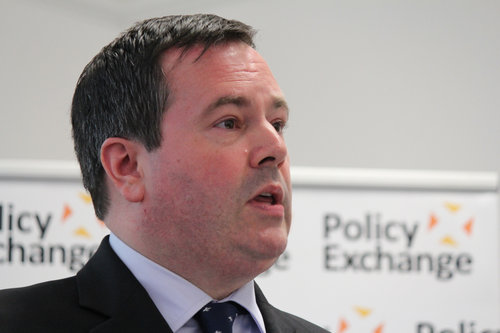Following up on my earlier discussion of why I think the US Republican Party would be wise to consider a more liberal approach to immigration, I note that the Republican Party of Nevada recently became the first state Republican party to endorse “amnesty” for unauthorised immigrants. Remarkably, their statement places a pathway to US citizenship on equal footing with “free enterprise” and “state responsibilities and local control” as priorities for the party. The relevant portion (emphasis in original):
The GOP has increasingly found itself in positions that do not meet the demographic realities of the State’s electorate. These positions also conflict with our party’s historic commitment to civil rights. To that end, Republicans must become more inclusive, reflecting our desire to secure a better life for all Americans, and equally important, for our children.
The United States should secure its borders, enforce the laws that exist, and recognize the many groups that have worked hard to support their families and build a community. These groups include Hispanics and other immigrant minorities, young and old, black and white. We support a pathway to citizenship for undocumented immigrants that would require registering with the government; and, include the ability to communicate in English, performing military or other community service, and proof of financial responsibility as required by the USCIS. One hundred and fifty years ago, our country fought a bloody Civil War. That war affirmed we have only one class of citizens— American.
It’s remarkably aggressive to compare the struggle for immigrant rights to the struggle against slavery in the US, and for this I say good on the Nevada GOP. But let’s put aside the moral dimension for now: even from a purely cold-blooded standpoint, it’s not at all unreasonable to believe that a more open stance towards immigration would be beneficial to the GOP.
Let’s take the preferences of different ethnic communities, which I previously discussed. Asians look to be a probable swing group, with some subgroups that historically have leaned Republican (e.g. non-African Muslims). Hispanics definitely lean Democratic, but with some fairly large gyrations in degree (George W. Bush narrowed historically very sizeable gaps in Hispanic support to about 20 percentage points).
Now if more Hispanics were to enter the US electorate today, that would be a huge concern for Republican strategists. It would be difficult for them to endorse outright citizenship for a very broad, undifferentiated swathe of unauthorised immigrants today. But that isn’t the only option they have. Republicans could just as well do what the Nevada GOP is doing and say: Sure, these people who live and work alongside Americans have just as much a right to aspire to citizenship as anyone else. But first, they should make reasonable amends for their past; if they do not, they must wait a substantial amount of time before becoming eligible to apply for citizenship.
Applying a filter of this sort would minimise the immediate hit to Republicans’ “bottom line”, so to speak. Moreover, if they position themselves correctly, and can claim the mantle of being the ones who saved immigration reform, doing this is liable to swing some portion of the current Hispanic electorate — not to mention other immigrant communities and other Americans who support reform. If we are doing a simple cost-benefit analysis, there is some potential long-run cost to this “amnesty”, but there is also a decent upfront benefit, one that might make this trade-off worth taking. It’s basic business practice to discount long-run costs/benefits and focus more on the upfront numbers, but I have not seen anyone actually try to run this basic cost-benefit analysis.
And we’re not even done yet. The preferences of communities can swing substantially based on the turn of events. Some surveys suggest the Muslim electorate swung from 70% for George W. Bush in his first term to 4% for Mitt Romney in 2012. Muslims were solidly Republican — right until they weren’t. If the Republicans can stake an even more aggressive position on immigration reform than Democrats and steal their thunder, there’s clearly a non-zero chance this will redound in a Hispanic swing substantial enough to turn their community from solidly Democratic to swing-voting or even leaning-Republican.
Moreover, Republicans need not and should not stop at a path to citizenship for unauthorised immigrants. They have a chance to shore up their brand as the party of “free enterprise” and “state responsibilities and local control”: immigration lawyer Angelo Paparelli has laid out over a dozen piecemeal immigration reforms that are consistent with core Republican principles and also build their brand as a forward-thinking party on immigration and social issues.
And there’s one other piece that Paparelli doesn’t have: Republicans should fight to open the borders, not just to more Hispanic immigrants, but to immigrants of all creeds and colours. The Latin American is but one of many who would like to call the US home. Again, Republicans can beat the Democrats at their own game: it’s not fair to the millions of poor in the world who work hard and have the same dreams as Americans to keep them out. Opening the gates to primarily more Hispanic immigrants is wonderful, but it perpetuates discrimination against someone born in Londonderry, Lahore, or Lagos.
If they pull this reorientation off, Republicans will have been responsible for one of the greatest expansions of liberty in the history of the world. Arbitrary immigration controls keep people in chains, prevent them from authoring their own life stories. The millions of new Americans and their descendants who get the vote (if the Republican-backed reforms will permit it) will forever owe a debt of gratitude to the farsighted Republican leaders who cynically chose to open the borders, knowing this would one day redound to them at the polls. (I jest, but only slightly — a hardheaded cost-benefit analysis was the starting point for this post after all.)
This whole scenario I’ve laid out seems incredible, if not impossible. I doubt it will happen. But the odds of it happening are definitely greater now than they were on the 5th of November 2012. Yes, the rudimentary beginnings of a cost-benefit analysis which I’ve laid out do not present a slam dunk for immigration reform. But neither is it a slam-dunk that immigration reform would be politically costly to the Republican Party, today or even tomorrow, despite this being restrictionist conventional wisdom.
And beyond the cost-benefit analysis, there is always a moral dimension. We cannot ignore forever the damage that morally-compromised laws do to immigrants, whether they live in our midst, or live faraway yearning to come. The Republican Party recognised this in 1864, when it proclaimed in its election manifesto:
Resolved, That foreign immigration, which in the past has added so much to the wealth, development of resources and increase of power to the nation, the asylum of the oppressed of all nations, should be fostered and encouraged by a liberal and just policy.
The Nevada GOP harked back to this when it recalled the waging of the US Civil War to prove “we have only one class of citizens”. But they would do well too to remember the words of Abraham Lincoln on the eve of that war:
As a nation, we began by declaring that “all men are created equal.” We now practically read it “all men are created equal, except negroes.” When the Know-Nothings get control, it will read “all men are created equal, except negroes, and foreigners, and catholics.” When it comes to this I should prefer emigrating to some country where they make no pretence of loving liberty — to Russia, for instance, where despotism can be take pure, and without the base alloy of hypocracy [sic].
Abraham Lincoln dedicated his life to the proposition that all men are created equal — black or white, foreigner or native. Lincoln himself told us: he would rather emigrate to Russia than put up with a modern Republicanism declaring that foreigners deserve unequal and unjust treatment. The defeat Republicans suffered at the polls in 2012 offers them a chance to redeem themselves, to stand proud once more as the party of Lincoln. The question is, will they take it?


